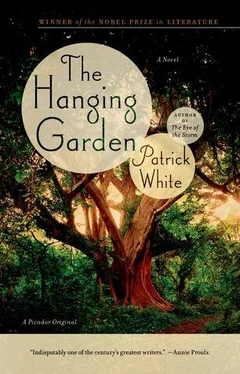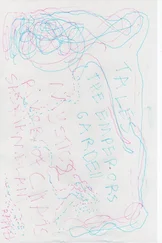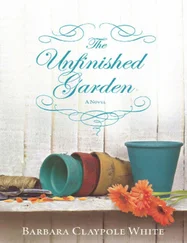He was old; his health was failing; he was seized with a missionary zeal to save the world from nuclear catastrophe and Australia from its Tory government — and he was falling once more under the spell of Jim Sharman. The young genius behind The Rocky Horror Picture Show and a string of hit musicals on the international stage had returned to Australia in the 1970s and revived White’s plays to great acclaim. A deeply grateful White dedicated The Twyborn Affair to Sharman. Now Sharman was to direct the Adelaide Festival and asked White for a play. Time was short. White resisted for weeks but by early March he was at work on both the novel and a play. He told the critic Jim Waites: ‘I had an idea for one but had never written it, as I didn’t feel anyone would be interested.’ The play was Signal Driver .
In the crowded weeks that followed, White divided his time between the two projects. A telegram on 10 March delivered Cape’s enthusiastic verdict on his memoirs, but many battles with his publishers followed to defend the sharp edge of his attacks on political and personal enemies. He was intransigent. In that same spirit he broke an old rule and appeared on television to condemn the political stagnation of his country. He was inundated afterwards with letters of support and pleas for help. With pride and exasperation he told Tom Maschler at Jonathan Cape: ‘Every other day I am expected to wave a wand and save somebody or something.’
The contrast between White the writer and White the campaigner at this time is absolute. While he raged on television against the failings of contemporary Australia, he was evoking in his new novel a more innocent time in the life of his country seen not through the eyes of an angry, sick old man but two children of fine promise. The prose is assured, unhurried and disciplined. White is everywhere and absent, as only the greatest novelists can be. Though his fears left him flailing at times in public, at his desk in the house above the park he was proving, once again, to be a writer of perfect poise.
White liked symbolic deadlines. He put the novel aside in order to finish a first draft of the play by 25 April, Anzac Day. ‘With all this, the novel I had begun is holding fire, but I shall come back to it as soon as I can; it is all in my head,’ he told his translator, Jean Lambert. A second draft of the play followed but by early June he was rereading the manuscript of the novel. ‘So far I have liked what I came across,’ he told Graham Greene at Cape. ‘It should be all right when I get it together. There is only this dreadful old age business, and one’s dread of blindness and senility.’ In August he told Maschler: ‘The novel is coming along by fits and starts. I hope I have the strength to finish it.’
He wrote in blue ballpoint pen on quires of foolscap. These five bundles, each holding roughly 10,000 words, tell us little about his creative chemistry. All the hard work was done in his head, not on the page. He scratches out paragraphs here and there, but essentially the prose rolls out in a long, clean ribbon. Characters, scenes and dialogue emerge fully formed. Corrections were made in red ballpoint pen. White’s handwriting, superb at first glance, has traps and hidden tangles for the uninitiated. He can hardly be reproached for this: these bundles of manuscript were meant for his eyes only.
The novel was to be in three parts, a structure White had used as early as The Aunt’s Story . But lately he had dispensed with chapter breaks so that each section of his last novel, The Twyborn Affair , has the long arc of a novella. It would seem the same was planned for The Hanging Garden : the outer sheet of the top bundle is marked ‘I’ and the text is an unbroken 45,000 words, which he later told his cousin Peggy Garland amounted to ‘about a third of a novel’. He had brought this part to a conclusion by October when the whole project finally came to grief in the uproar surrounding the publication in London and then Australia of Flaws in the Glass .
The book was front-page news. White’s acerbic verdicts were quoted in newspapers throughout the English-speaking world. Attacks and counter-attacks were furious. As he approached his 70th birthday, White found he had published the great best-seller of his career. He also found these weeks fundamentally exhausting. He wrote in one or two letters of hoping to return to the novel once the furies were off his back, but in November he confessed to Maschler: ‘The whole thing has left me very tired and I doubt I shall ever get back to a normal writing life.’ As the year ended, he realised he had neither the stamina nor the will to ‘grind out’ another big novel. He announced almost formally that he would now devote what energies he had left to the stage and political causes. ‘No more novels,’ he told Lambert. ‘They are too wearing, physically and I think by now I know how to machine gun more accurately in the theatre.’
He put the manuscript away. Perhaps he hoped to turn The Hanging Garden to good use one day as he had other discarded projects. ‘The Binoculars and Helen Nell’, abandoned in the late 1960s because it seemed ‘an overblown mass, of too much flesh’, was mined immediately for The Night the Prowler and years later for The Twyborn Affair . The fragment ‘Dolly Formosa and the Happy Few’, put aside because it ‘smells a bit of carpentry and bookmaking’, would be dug out twenty years later to become the backbone of The Memoirs of Many in One . But there was to be no such afterlife for The Hanging Garden. It was found untouched in White’s desk at his death in 1990.
He had directed his unpublished manuscripts be destroyed. But his old friend and literary executor, Barbara Mobbs, had her doubts: if White really wanted this evidence of his long literary life to disappear, why hadn’t he burnt the papers himself? Before leaving his old house in Castle Hill in 1964 he destroyed all his manuscripts and hundreds of letters in a fire that burnt for days. Many times in the last years of his life White showed Mobbs the notebooks, letters and manuscripts crammed into his desk. ‘But he never told me to get the matches.’ She waited for Manoly Lascaris to die; took a little more time so that everything might be done in good order; and then, on behalf of the charities that are the beneficiaries under White’s will, sold thirty-two boxes of his papers in 2006 to the National Library of Australia. It proved the greatest literary treasure trove in this country.
The possibility of publishing The Hanging Garden was broached with Mobbs in 2010. She was sceptical but did not veto the idea. A typescript was prepared under the supervision of Professor Margaret Harris and Emeritus Professor Elizabeth Webby of Sydney University, as part of their work on the White papers funded by an Australian Research Council grant. Harris and I then checked the transcription together, leaving about twenty unreadable phrases to be deciphered by Mobbs, the greatest living expert on White’s handwriting. We also enlisted the writer Angelo Loukakis and my colleague at the Sydney Morning Herald Anna Patty to deal with White’s Greek. One impossible Greek phrase defeated us. Otherwise we ended up with a clean and unambiguous text.
It is not a first draft. White had clearly been through the manuscript at least once making corrections. Nor is it a final draft. He had left notes here and there in the text about problems — nearly all trivial — that needed to be addressed. The most substantial comes in the manuscript’s last pages, where White has the news of Hitler’s defeat reaching Sydney (wrongly) in the evening. He had a lifetime horror of anachronism: ‘Foregoing passage on end of the war in Europe in need of revision as the news came through in the morning. First must come the address of school heads, then in the evening personal reactions of parents and children to the great event.’
Читать дальше












